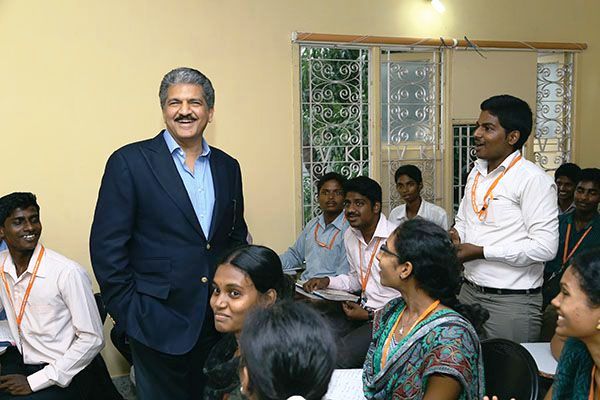Some companies have gone beyond the mandated number of CSR committee members and brought in more members, that too independent directors, which has had a positive impact on the implementation of CSR initiatives.

Companies are looking at corporate social responsibility (CSR) as more than just a compliance exercise; the first signs of an attitudinal change are visible with their boards attempting to take CSR beyond the mandate stipulated by the government.
The CSR Rules 2014, framed under the Companies Act 2013, require companies with a net worth of Rs.500 crore or revenue of Rs.1,000 crore or net profit of Rs.5 crore to spend 2% of their average profit in the last three years on social development-related activities. The ministry of corporate affairs (MCA) also laid down clear rules and responsibilities on how firms and their boards should handle their CSR affairs.
The rules said every company should constitute a CSR committee with at least three members, one of whom has to be an independent director. These members are responsible for approving the CSR policy, making sure the activities are aligned with Schedule VII (list of CSR activities under the Rules that companies can pursue) and put in place a transparent monitoring mechanism for the implementation of projects.
In fiscal 2016, the second year of mandated CSR, experts found that these CSR committees had gone a step beyond what is required of them.
Castrol Ltd, Ambuja Cements Ltd, Mahindra and Mahindra Ltd and HDFC Bank Ltd are some of those companies going beyond what is stipulated and laying the ground for best practices.
One of the things that these companies have done is to go beyond the mandated number of CSR committee members and brought in more members, that too independent directors.
Castrol, and Mahindra and Mahindra each have five CSR committee members, three of whom are independent directors.
Dilnaz Anklesaria, associate vice-president, communications for Castrol, said that having more committee members helped in bringing diverse capabilities and defining a robust CSR strategy. Castrol spent Rs.10.4 crore on CSR for calendar year 2015, with Rs.3.75 crore remaining unspent.
At Mahindra, too, having more members, especially independent directors, benefited CSR.
“We brought more independent directors on board so that we could have a broader outlook and a balance in perspectives. Also, they are able to bring a lot more rigour into the process,” said Rajeev Dubey, chairman of the Group CSR Council and member of the Group Executive Board at Mahindra.
The company met its 2% CSR expenditure target for FY16, spending Rs.84.95 crore.
Experts see this is a step towards good governance in companies. “Having more independent members is a good governance practice. It helps bring a balance between the company’s interests and social interests,” said Santhosh Jayaram, head of CSR and sustainability at KPMG India.
At HDFC Bank, CSR head Nusrat Pathan said the entire board’s involvement means those planning and executing CSR projects are able take advantage of the bank’s wider expertise in various areas.
“As we were going more rural with our CSR operations, and since the board already had the visibility to see in which direction the bank was moving for growing the business, we could capitalize on existing resources that the bank has in those areas that we were expanding to for CSR,” said Pathan.
The bank has five board members on its CSR committee, two of whom are independent.
Some others like Ambuja Cements insist that the CSR committee members visit the projects on the ground and look at how they function instead of taking an armchair-policymaking approach.
“Not just the CSR committee members but other board members also visit the various CSR sites to get the real picture of the impact we are able to create. It also helps focus on the big picture instead of getting caught up in looking at it just as a policy,” said Pearl Tiwari, President (CSR & Sustainability) in Ambuja Cements, who visits the projects every month. Ambuja Cements has seven board members on its CSR committee—one of the highest—two of whom are independent.
Ambuja Cements, too, met its 2% mandate, spending Rs.40.9 crore in FY16.
At Ambuja, the board has also played a role in building better data collection and monitoring systems. “Given that the board also has a role in monitoring the projects, the CSR committee thought that better systems need to be created for monitoring,” said Tiwari.
Instead of leaving the job of data collection and monitoring entirely to non-governmental organizations, the CSR committee thought that a system ought to be created not just for quantitative data collection but also to look at qualitative data collection.
“We are partnering with some external agencies in developing a tool for this,” said Tiwari.
For Jayaram, this represents an attitudinal shift in the way companies approach CSR.
“The first year, we consultants were mostly called for audit and programme development work, but now we are seeing companies focus on strategy, and look at what kind of social return on investment to expect. There is a desire to make a big impact. And this desire and direction is not coming from just the CSR head but the board members themselves, which will help sustain the drive to create impact,” said Jayaram.
this article has been taken from here.
